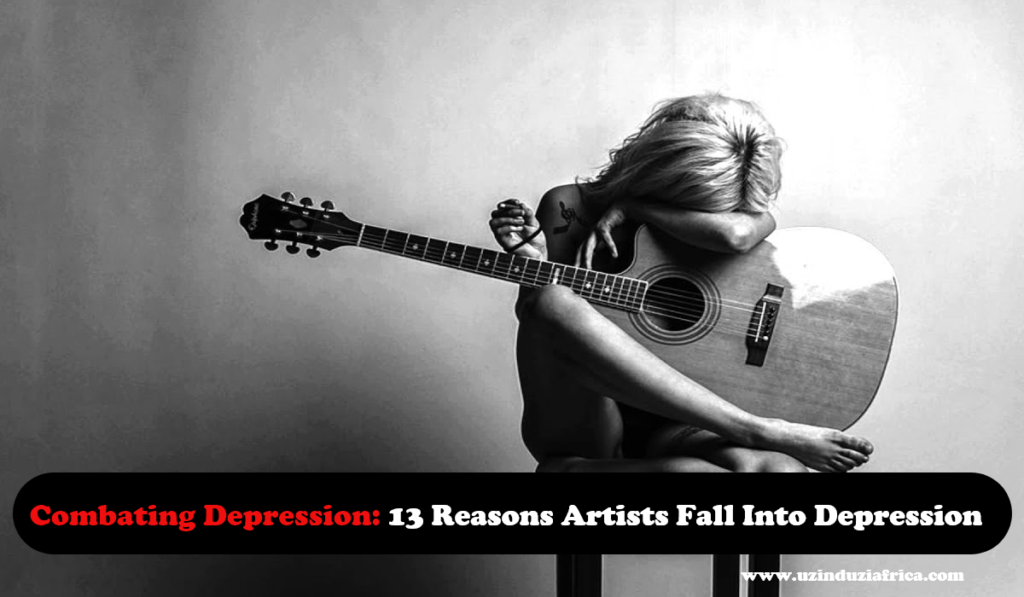In the depths of our minds, a silent battle rages on, affecting millions around the world. It’s a battle that goes beyond mere sadness or a passing bout of low spirits. It’s a battle known as depression, a relentless adversary that can cast a shadow over our lives for weeks, months, or even longer. However, amidst this darkness, there is hope.
Welcome to a blog series dedicated to unraveling the complexities of depression and exploring the vast realm of mental health. Here, we embark on a transformative journey—a journey that delves into the very essence of our emotional, psychological, and social well-being. It’s a journey that will empower us to understand how our thoughts, feelings, and actions intertwine, ultimately shaping our ability to overcome adversity, nurture relationships, and make sound decisions.
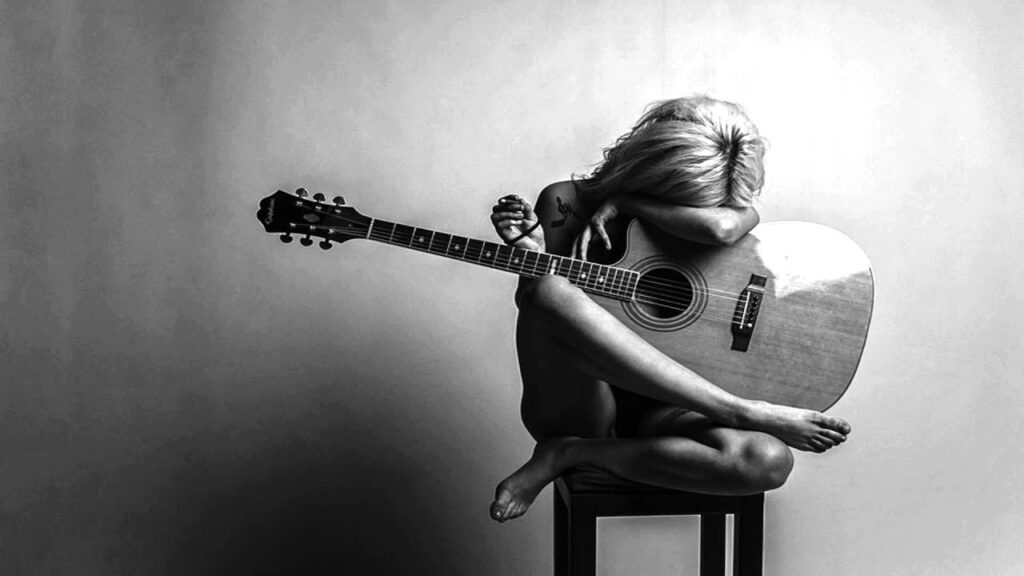
Together, we’ll navigate the labyrinthine corridors of psychotherapy and psychiatry. We shall also be seeking answers, insights, and strategies to conquer the formidable challenges that depression throws our way. We’ll unveil the secrets of mental resilience, unlocking the door to a brighter future.
Now if you’ve ever felt the weight of despair or witnessed its grip on someone you care about, join us on this captivating expedition. Together, we’ll shine a light on the shadows, fostering a deeper understanding of depression and embracing the path to mental well-being. Get ready to embark on a transformative odyssey—a voyage that will inspire, uplift, and empower us all.
In this article
In this article I’m going to be looking at how depression affects artists, how some have dealt with it. Moreover, I’m going to be looking at:
- Artists that have sang about depression and whether it was relatable to them on not.
- what causes depression in artists
- Suggested ways of dealing with it
But my main contention is on what really makes artists depressed and how it affects them.
Introduction
Artists are known for their ability of being creative and the last thing we would expect to happen to them is depression because there is no clear link between depression and creativity but turns out this is more common in the entertainment industry, so now we’ll look at some of the causes of depression in this field
Open-mindedness makes artists vulnerable to various thoughts and situations. When you’re in a position where you put your life out there and your main goal is to impress, you’re bound to overthink a lot. When you are an overthinker, you’re generally an easy target for depression, Artists have a deeper level of intuition that helps them express deeper feelings with increased sensitivity. Being an artist means you’re mostly likely to understand deep things which only adds to their overthinking problems. Artist also has a melancholic state of mind which leads to depression, this simply means they have that sorrowful nature in them.
Now I’ll just list down some of the other reasons or causes of depression in Artists.
1. Pressure to constantly create and perform
Artists often have to live in a world where creativity is expected to flow continuously. The pressure to produce new and innovative work can be overwhelming. Artists may feel the weight of expectations from fans, critics, and even themselves. The fear of not living up to their previous successes or being unable to meet deadlines can lead to self-doubt and a sense of inadequacy. This constant pressure can take a toll on their mental well-being, contributing to feelings of depression.
2. Unpredictable income and financial stress
One of the harsh realities of pursuing a career in the arts is the unpredictable nature of income. Artists often face financial instability, with irregular paychecks and uncertain prospects. This constant financial stress can be a significant source of anxiety and depression. The constant worry about making ends meet, paying bills, and affording the basics of life can take a toll on an artist’s mental health, leading to a sense of hopelessness and despair.
3. Constant criticism and scrutiny from fans, critics, and industry professionals
Artists pour their heart and soul into their work, hoping to connect with their audience. However, with their work being exposed to the public eye, they are also exposed to criticism and scrutiny. Negative reviews and harsh comments can be devastating to an artist’s self-esteem. Constantly being judged and evaluated by others can lead to feelings of worthlessness and can contribute to the development of depression.
4. Lack of control over their work and creative decisions
Artists often find themselves at the mercy of external factors such as record labels, managers, or producers who may have different visions for their art. This lack of control over their creative decisions can be frustrating and disheartening. When artists feel that their authentic voice is compromised or when they are forced to create work that doesn’t align with their artistic vision, it can lead to a sense of disillusionment and contribute to feelings of depression.
5. Isolation and loneliness from touring and traveling
While touring and traveling may seem glamorous from the outside, the reality for many artists is a constant state of isolation and loneliness. Being away from loved ones, friends, and familiar surroundings can take a toll on mental well-being. The lack of a stable support system and the constant uprooting of their lives can lead to feelings of loneliness, homesickness, and depression.
6. Unhealthy lifestyle habits
The demanding and unpredictable nature of the artist’s lifestyle can sometimes lead to unhealthy coping mechanisms. The pressure to perform, late-night gigs, and irregular sleep patterns can disrupt an artist’s physical and mental health. Some artists may turn to substances as a means to cope with stress, anxiety, or to enhance their creativity. However, these habits can exacerbate existing mental health issues and contribute to depressive symptoms.
7. Comparison and competition with other musicians
The music industry can be fiercely competitive, and artists are constantly comparing themselves to others. The success and achievements of fellow musicians can trigger feelings of jealousy, inadequacy, and self-doubt. Constantly measuring oneself against others’ standards can lead to a negative self-image and contribute to depressive thoughts and feelings.
8. Fear of failure and rejection
Artists often face the fear of failure and rejection, as their work is subject to subjective opinions and tastes. The fear of not being accepted or appreciated can be paralyzing for many artists. The constant need for validation and the fear of being rejected or ignored can contribute to feelings of depression and anxiety.
9. Trauma and stress from past experiences
Artists, like anyone else, can carry emotional baggage from traumatic experiences in their past. These experiences may include childhood trauma, personal loss, or difficult life events. The emotional weight of these experiences can resurface during vulnerable times, triggering or exacerbating depressive symptoms.
10. Personality traits like perfectionism and sensitivity
Artists often possess personality traits like perfectionism and sensitivity, which can make them prone to depression. The constant pursuit of perfection and the inability to accept anything less can lead to self-criticism and high levels of stress. Additionally, the heightened sensitivity to emotions and external stimuli can make artists more susceptible to experiencing depressive episodes.
11. Social media pressure and the need to maintain a public image
In today’s digital age, artists are not only expected to create art but also to maintain a strong online presence. Social media platforms can be both a blessing and a curse. While they offer exposure and opportunities, they also contribute to a sense of pressure and the need to maintain a curated public image. The constant comparison, pressure to gain followers, and the fear of negative feedback can take a toll on an artist’s mental health and contribute to depressive feelings.
12. Lack of support and resources for mental health
Despite the growing awareness of mental health issues, artists often face challenges in accessing adequate support and resources. Limited access to affordable therapy, stigma associated with seeking help, and the perception that struggling with mental health may negatively impact their career can create barriers for artists seeking assistance. The lack of a strong support system and the absence of tailored mental health resources specifically designed for artists can make it difficult for them to find the help they need, exacerbating feelings of depression.
13. The highs and lows of the music industry
The music industry is known for its unpredictable nature, characterized by highs and lows. Artists experience moments of success and recognition, but they also face the pressure to maintain that momentum. The expectations to consistently produce new and groundbreaking content can be mentally and emotionally draining. Additionally, the sudden rise to fame and the accompanying scrutiny and loss of privacy can lead to immense stress and feelings of depression.
A few artists who’ve sang about depression
It’s not every musician that has depression sings or talks about it; some are not that comfortable talking about it so they just suffer in silence. However, we’ve other artists who are willing to express it and get help so that they can have a peaceful mind and great mental health.
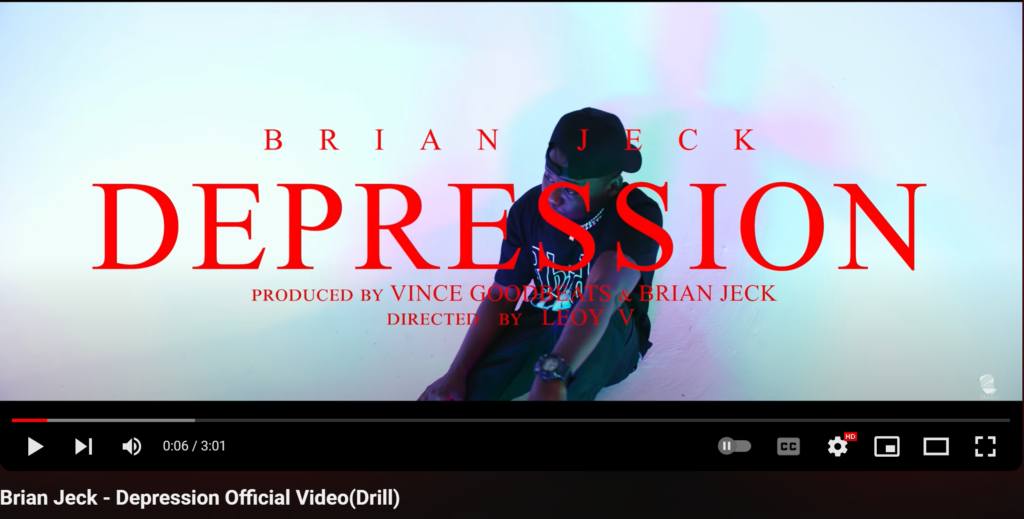
We’ve Artists like Brian Jack, who actually sang about him being depressed. Now I don’t know how that song is related to his personal life, but that song spoke volumes on how he’s really depressed. There’s also Master H with his song called Zviri mumoyo, which talks about how he’s haunted by his past experience, how he grew up and how he hasn’t forgotten all about it.
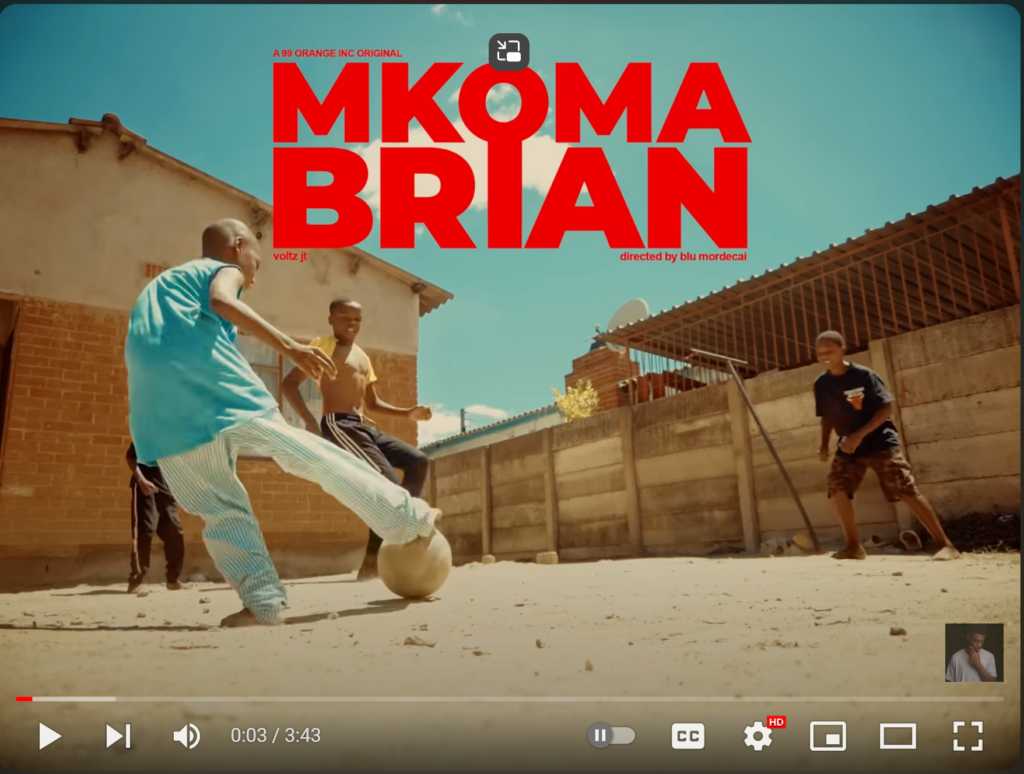
Then we’ve people like Caroline Nyakudya: a UK-based Zimbabwean musician and mental health professional who released an EP called “Keep On” to raise awareness about mental health, depression and suicide, she’s out to help those that have been affected by depression and gives them courage. Voltz JT has his Mkoma Brian hit, where he sings about the effects of instability of the mind and the effects of that and also what he thinks should be a better way of dealing with such situations.
Now that I’ve laid down the causes of depression, let’s see on how best we can deal with someone who’s depressed. I will just list the ways and means that I came across in my research. Part of that research included a sit down with a mental health advocate. However, in this article I will end with the list then in a future article I delve into details.
How to deal with depression
- Seek professional help: Consult a therapist, counselor, or psychiatrist.
- Exercise regularly: Physical activity boosts mood and reduces symptoms.
- Social support: Connect with friends, family, or support groups.
- Mindfulness and meditation: Practice mindfulness techniques to calm your mind.
- Healthy sleep habits: Aim for 7-8 hours of sleep per night.
- Engage in activities you enjoy: Do things that bring you pleasure and purpose.
- Challenge negative thoughts: Practice cognitive-behavioral therapy (CBT) techniques.
- Take breaks and practice self-care: Allow yourself time to relax and recharge.
- Try journaling: Write down your thoughts and feelings to process and release emotions.
- Limit social media: Avoid comparing yourself to others and take breaks from social media.
- Try relaxation techniques: Yoga, deep breathing, and progressive muscle relaxation can help.
It is for this reason, therefore, that as much as depression may darken the life of an artist, it is still worth remembering that the same reasons behind the struggles could be the elements building their strength and recovery. By acknowledging the challenges they face and embracing the available options, artists can find a way to heal and recover their creative spirits.
Being open and honest about mental health within the artistic community can really be a huge agent for change. By breaking the silence around depression, artists can create a supportive environment where vulnerability is embraced and help is encouraged. They can break the stigma that goes hand in hand with mental health and make everyone understand with a spirit of compassion.
Conclusion
There are various available options that an artist can take to navigate through the labyrinth of depression. Seeking therapy, self-care, and healthy coping mechanisms are some of the options for regaining control over mental health. Besides, artists need to build a strong support system both within the industry and beyond to act as the support system that they will require during the journey of their recovery.
As much as we could go ahead and celebrate the music or art produced by the artist, we can go a step further to appreciate the artist and their mental health. Let the industry be one that supports the human behind the art. Let’s celebrate authenticity and creative vulnerability, reminding artists that they should not solely determine their worth based on productivity or external recognition.
Depression might be a tough adversary, but never is it invincible. With awareness, understanding, and collective effort, artists can find a haven in the industry. Together, let’s join hands and break the chains of silence, shaping a future where we accomplish the artistic journey together with clear, resilient, and inspired minds. We can make a world where art and good mental health happily cohabit, nurturing the souls of its creators and its audiences.
*** End of Article ***
Important Links
To read articles offline, please follow the WhatsApp Channel here.
Be a part of the discussions with the authors, please join the community WhatsApp Group Here.
To read more articles Click Here.
About The Author
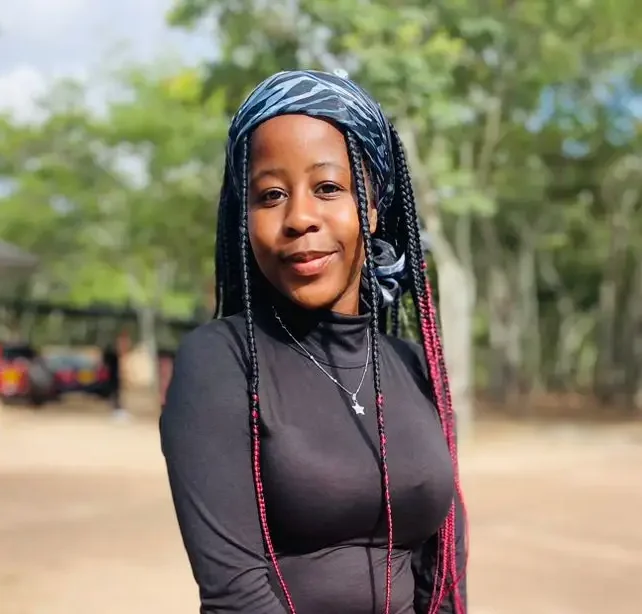
Alice Ndipo is a young aspiring writer who possesses a deep passion for crafting captivating poems, insightful articles, soulful music, and enthralling novels. Her creative journey is fueled by a love for storytelling, as she continues to develop her skills and share her unique perspectives with the world. Connect with her on her socials.
